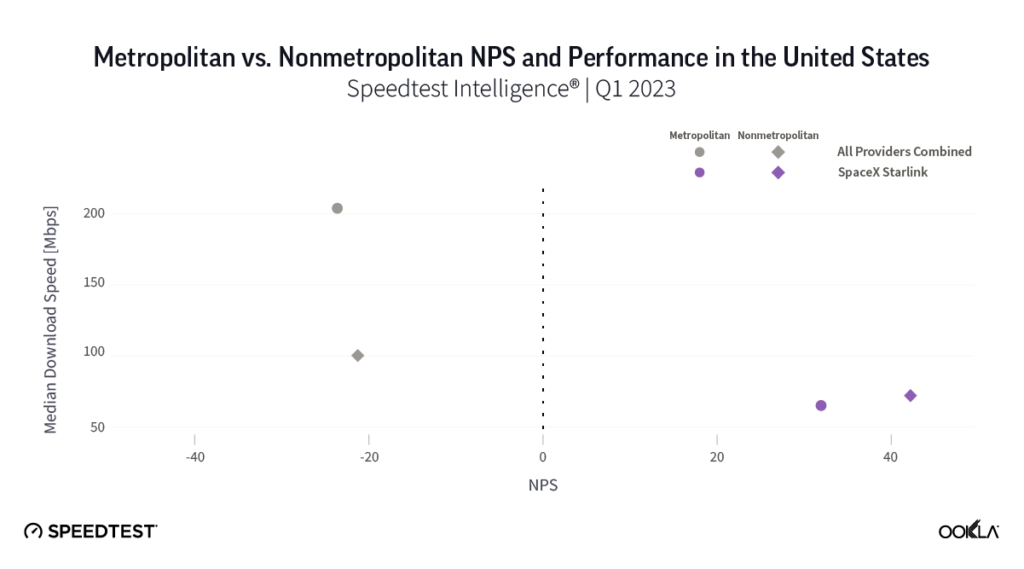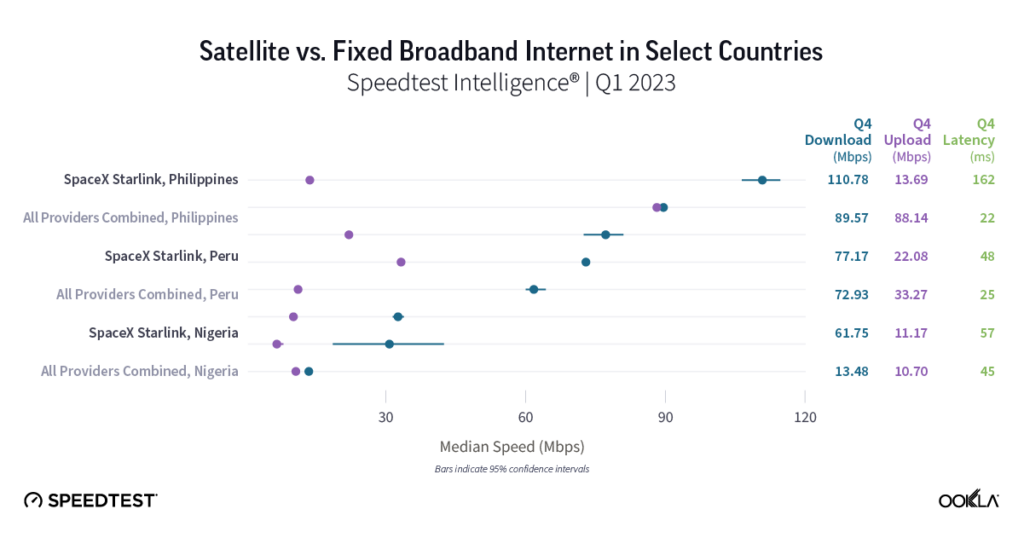Starlink in Canada was the fastest in North America, clocking a download speed of 93.97 Mbps
According to new data gathered by Ookla, Starlink users “love” their service, while fixed broadband users are a whole lot less thrilled with their internet service providers (ISPs).
When users were asked to rate how likely they are to recommend their provider to friends or family on a scale of 0 to 10, both metro and non-metro Starlink far outperformed metro and non-metro ISPs combined for Net Promoter Score (NPS) ratings, which are categorized into Detractors (score 0-6), Passives (score 7-8), and Promoters (score 9-10), and is calculated as (% Promoters – % Detractors) x 100.
Both metro and non-metro Starlink far outperformed metro and non-metro ISPs combined for NPS. Metro Starlink had a score of 31.94 compared to -23.62 for all metro fixed broadband providers combined. Further, rural Starlink users rated their service even higher at 42.21, compared to non-metro ISPs at -21.27. Ookla points out that these discrepancies are particularly notable given that Starlink generally had a lower median download speed than the fixed broadband providers.

“Clearly, Starlink provides a much loved option for more rural, nonmetro users who often don’t have many good — if any — internet options,” wrote Josh Fomon, content specialists at Ookla. “And the message is loud and clear: Starlink users are more than willing to recommend the service and love the internet they are getting.”
Ookla also found that in North America, Starlink in Canada was the fastest in the region in the first quarter of 2023, clocking a download speed of 93.97 Mbps, compared to Starlink in the U.S. (66.59 Mbps) and Starlink in Mexico (56.42 Mbps). In South America, Starlink in Chile was the fastest satellite provider with a median download speed 84.62 Mbps, edging out Starlink in Peru by about 5%. Then in the Caribbean, Starlink in Jamaica was the fastest satellite at 83.79 Mbps for the same time period, beating Puerto Rico (74.61 Mbps), the U.S. Virgin Islands (57.08 Mbps) and the Dominican Republic (46.24 Mbps).

During Q1 2023, Ookla gathered Starlink data from three new countries: Nigeria, Peru and the Philippines. According to Ookla, the results are promising. Specifically, median download speeds for Starlink in Nigeria (61.75 Mbps) and the Philippines (110.78 Mbps) were both faster than all fixed broadband providers combined. In Peru, it was statistically too close to call at 77.17 Mbps for Starlink and 72.93 Mbps for all providers combined. However, fixed broadband providers claimed faster upload speeds in Peru and the Philippines, and in Nigeria, it was too close to call.
As of May 2023, SpaceX has launched more than four thousand Starlink low Earth orbit (LEO) satellites.

